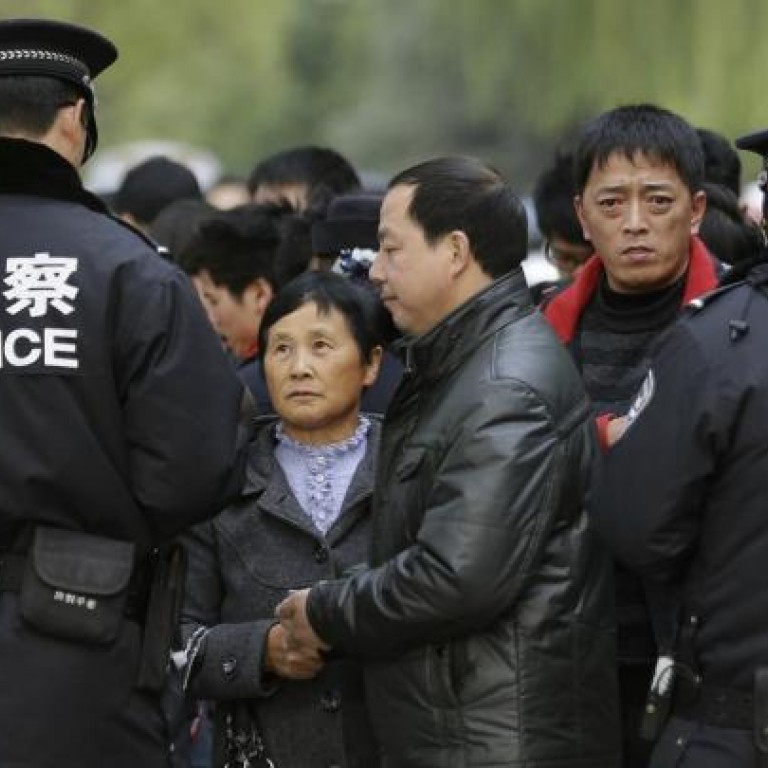
Corruption crackdown as party tells of 'profound lessons' of Bo Xilai scandal
Party watchdog is working on new system to combat graft after cases of Chongqing boss and railways minister
The Communist Party said yesterday it had learned profound lessons from the Bo Xilai scandal and was devising a working plan to better prevent and punish corruption.

"The lessons were extremely profound," Cai said, adding that the party's anti-graft watchdog was working on a plan to build a better system to combat corruption in the next five years.
Bo, a former Politburo member once seen as a candidate for top office, was dismissed over allegations he had received more than 20 million yuan (HK$24.6 million) in bribes.
It is also alleged he interfered in the investigation of his wife's murder of a British businessman.
Liu was sacked last year for disciplinary violations, including graft and sexual misconduct.
Cai also tried to ease public anger over official corruption by saying that China was a nation in transition, and "the phenomenon of corruption happens easily and often; to punish and prevent corruption is a complicated long-term task for the party".
The once-a-decade power reshuffle that will follow the congress was nearly derailed by the scandal surrounding Bo.
reported on Tuesday the Ministry of State Security had suspected British businessman Neil Heywood, poisoned by Bo's wife Gu Kailai in November last year, was a spy for Britain's MI6 foreign intelligence service.
The story quoted an anonymous source with high-level party ties as saying: "Heywood was on the ministry's watch list, possibly for years, as a result of his relationship with the Bo family". Last month Bo was stripped of his membership of the National People's Congress. This month, he was also formally expelled from the party. Prosecutors have begun a criminal probe into his case, but have yet to announce charges.
An earlier internal investigation recommended that Bo face criminal prosecution on charges of corruption, abuse of power and tampering with the investigation into Heywood's death.
However, there has been speculation that his real offence was his eagerness to challenge the leadership transition.
Cai pledged that the party would show no mercy to any corrupt senior official, "no matter who he is, and no matter how high-profile he is". Zhang Lifan , a historian formerly with the Chinese Academy of Social Sciences, said that the party's announcement did not foreshadow any progress on fighting corruption because the party still wanted to handle such matters internally.
"They could punish their men, such as Bo and Liu, but they don't want any supervision from outside of the party," he said.
